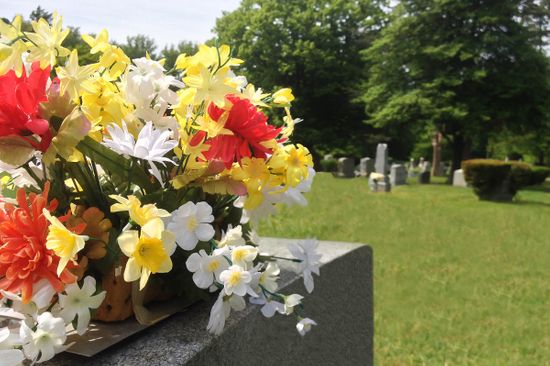Having a legally binding will in place gives you peace of mind, knowing that your estate will be handled as you wish.
In this guide, we’ll walk you through everything you need to know about making a will in the UK — from the essentials to the practical steps to get started.
A will is more than just a legal document; it’s a way to ensure that your loved ones are looked after and that your wishes are respected. And that’s not the only reason making a will is so vital.

If you pass away without a will, there are strict rules that determine how your money, property, and possessions will be distributed. These rules may not reflect your personal wishes, and your loved ones could face unintended complications at an already difficult time.
For those in committed but unmarried relationships, or for partners who have not registered a civil partnership, the implications can be particularly harsh. Without a will in place, your partner will not automatically inherit from you—potentially leading to serious financial challenges on top of the grief of your loss.

If you have children, creating a will is even more essential. It allows you to specify who should care for your children if either one or both parents pass away, providing security and clarity for their future. It also ensures that your wishes are honoured in terms of how your estate should support them.
Planning ahead with a will may also help reduce the inheritance tax burden on your estate. By seeking professional advice early and making strategic choices, you can potentially lessen the financial impact on those you leave behind.

Life is full of changes, and if your circumstances have shifted—such as going through a separation, remarrying, or entering a civil partnership—it is crucial to update your will. This ensures that your money and belongings go to the people you care about most.
For instance, if you have separated and your former partner is now in a new relationship, you may wish to adjust your will to reflect your current wishes. Likewise, if you marry or register a civil partnership, this can invalidate a previous will, making it important to create a new one.
Before we dive into how to make a will, it’s essential to understand the legal requirements to ensure your will is valid:
Follow these steps to create a will that accurately reflects your wishes:
Begin by making a list of everything you own, including
Understanding the full scope of your estate will help you make informed decisions.

Next, you’ll need to decide who will inherit your assets. These could be family members, friends, or charities. Consider backup beneficiaries in case your primary choices are no longer available.
You can include your children as beneficiaries in your will, even if they are still young. You have the option to specify the age at which you would like your children to have access to their inheritance—this is often set at 18, 21, or 25. Until your child reaches this age, their inheritance will be safely held in a trust, managed by trusted individuals known as trustees.
You can appoint these trustees in your will, ensuring that your children’s interests are thoughtfully looked after.
An executor is someone you trust to carry out the terms of your will. You only need one executor, however, you can appoint up to four. Keep in mind that, if any of your beneficiaries are under 18 years of age, or your will includes a trust, you’ll need to appoint at least two executors.
Executors will manage your estate, pay any debts, and distribute your assets, so, it’s important you take care in choosing someone who is responsible. Make sure to discuss your choice with them beforehand, to ensure they are willing to take on the responsibility of this role, as they have a right to refuse.
If you have children under 18, it’s crucial to name guardians who will care for them. This is one of the most significant decisions parents make in a will, so take care to choose someone who will act in your children’s best interests.
This appointment will only take effect if, at the time of your passing, there is no one else with parental responsibility for your children.
Again, it’s important that you discuss your choice with them beforehand, to ensure that they are willing to take on the responsibility of this important role.
Specify any end-of-life preferences, such as a direct cremation. Including these instructions can alleviate the stress on your loved ones during an emotionally difficult time.
If you are considering direct cremation, you can learn more about our services and funeral plans at Distinct Cremations.
You can either write your will using DIY templates, many of which are available online, or consult a solicitor or a professional will-writing service.
While writing it yourself may save money, professional advice can ensure there are no mistakes that could render your will invalid.
Ensure your will is signed and witnessed according to UK legal requirements. This step is crucial, as an incorrectly signed will could be contested or declared invalid.
Finally, keep your will in a safe place, such as with your solicitor, in a bank, or with a trusted individual. Make sure your executor(s) knows where to find it in the event of your passing.
A person's life is subject to many changes, and so your will should and can be amended when necessary.
You should review your will regularly, especially after major life events such as marriage, divorce, the birth of a child, or significant changes in your financial situation.
To amend your will, you can either make a codicil (an official alteration) or create an entirely new will.


Writing a will is a straightforward process, but there are some common pitfalls to be aware of:
Creating a will is an essential part of protecting your loved ones and ensuring your wishes are respected. By taking the time to make a legally binding will, you gain peace of mind knowing that your estate will be handled the way you want.
Remember, making end-of-life arrangements, such as specifying your cremation preferences, is also a crucial part of planning for the future.
At Distinct Cremations, we’re here to help you plan with confidence. Learn more about our simple and affordable direct cremation services, funeral plans, and how we can support your end-of-life planning needs.
Ready to secure your future and protect your loved ones? Start planning your funeral today, and take control of your legacy.

Want to talk through our options? If you have questions or would like some in-person support we're just a call away.
Speak to our team
Need some time to digest the details? You can download our guide online or get a printed copy posted out.
Get a free guide
Our friendly team can help you arrange a dignified and low cost direct funeral for a loved one,
Arrange a funeral
Thinking about funeral planning for ourselves or someone we love can be hard. But knowing what the people you care about want to happen at their funeral is the only way to fully honour their wishes.
Funeral planning
Why are cremations favoured by the majority of the UK? Part of the reason is due to the fact that cremations are more affordable, more flexible, and fuss-free, which is usually what families prefer at such a difficult time.
Cremation or burial
Alternatives to a traditional funeral have become much more popular in recent years. In this guide, we outline the different options available and look at why people are opting for something a little bit different.
Traditional funeral alternativesWe offer the highest level of support, but don't just take our word for it. Below are recent reviews from customers who bought a funeral with us.





